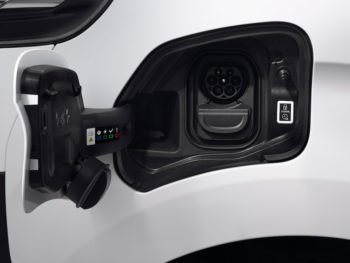Ofgem is making a £300m investment to support the UK’s electric vehicle revolution, helping to triple the UK’s ultra-rapid charging network.

The funds will include work on cabling to enable 1,800 new ultra-rapid charge points to be installed at motorway service areas and key trunk road locations across the country – this will triple the current 918 ultra-rapid charge points, according to Zap-Map data.
The investment by the energy regulator will also support a further 1,750 charge points in towns and cities by upgrading the UK’s cables, substations and other infrastructure. The investment also includes more rural areas, with charging points for commuters at train stations in North and Mid Wales and the electrification of the Windermere ferry.
The work will help tackle the current worry among drivers about where to charge their vehicle. Research published by Ofgem found that while almost one in four (24%) consumers plan to buy an electric vehicle or plug-in hybrid in the next five years, a total of 36% of households that do not intend to get an electric vehicle are put off making the switch over a lack of charging points near their home.
Jonathan Brearley, chief executive of Ofgem, said: “The payment will support the rapid take up of electric vehicles which will be vital if Britain is to hit its climate change targets. Drivers need to be confident that they can charge their car quickly when they need to. We’re paving the way for the installation of 1,800 ultra-rapid charge points, tripling the number of these public charge points. Drivers will have more charging options for longer journeys.”
The news was welcomed by the Climate Change Committee. Keith Bell, committee member and professor of electronic and electrical engineering at the University of Strathclyde, said:
“This joint initiative by Ofgem and the electricity distribution network companies is a welcome development, showing flexibility in the regulatory arrangements in the long-term interests of energy users. On the journey to Net Zero, we need to make it as easy as possible for people to manage without their combustion engine cars. Electric vehicles are looking more and more attractive, but we need to make sure they can be charged easily, and that means having the right infrastructure – charge points and network capacity – in the right place at the right time.”
The funding comes after Ofgem, the Energy Networks Association and each of the Distribution Network Operators (DNOs) launched a call for evidence in February for energy networks to come forward with projects that could help Britain reach net zero emissions faster and support the economy as the country comes out of the pandemic.
Ofgem has also indicated that it will allow billions more investment and better use of flexible technologies and innovations for the local electricity networks from 2023.
Commenting on the funding, RAC EV spokesman Simon Williams said: “Widespread availability of faster charging facilities will help to give more drivers the confidence to go electric and will also be vitally needed as more people opt for EVs. It will also mean EV drivers travelling long distances will be able get to their destinations more quickly and with far less stress. We believe the closer the experience of public recharging becomes to the short time spent refilling at petrol stations, the better.”

